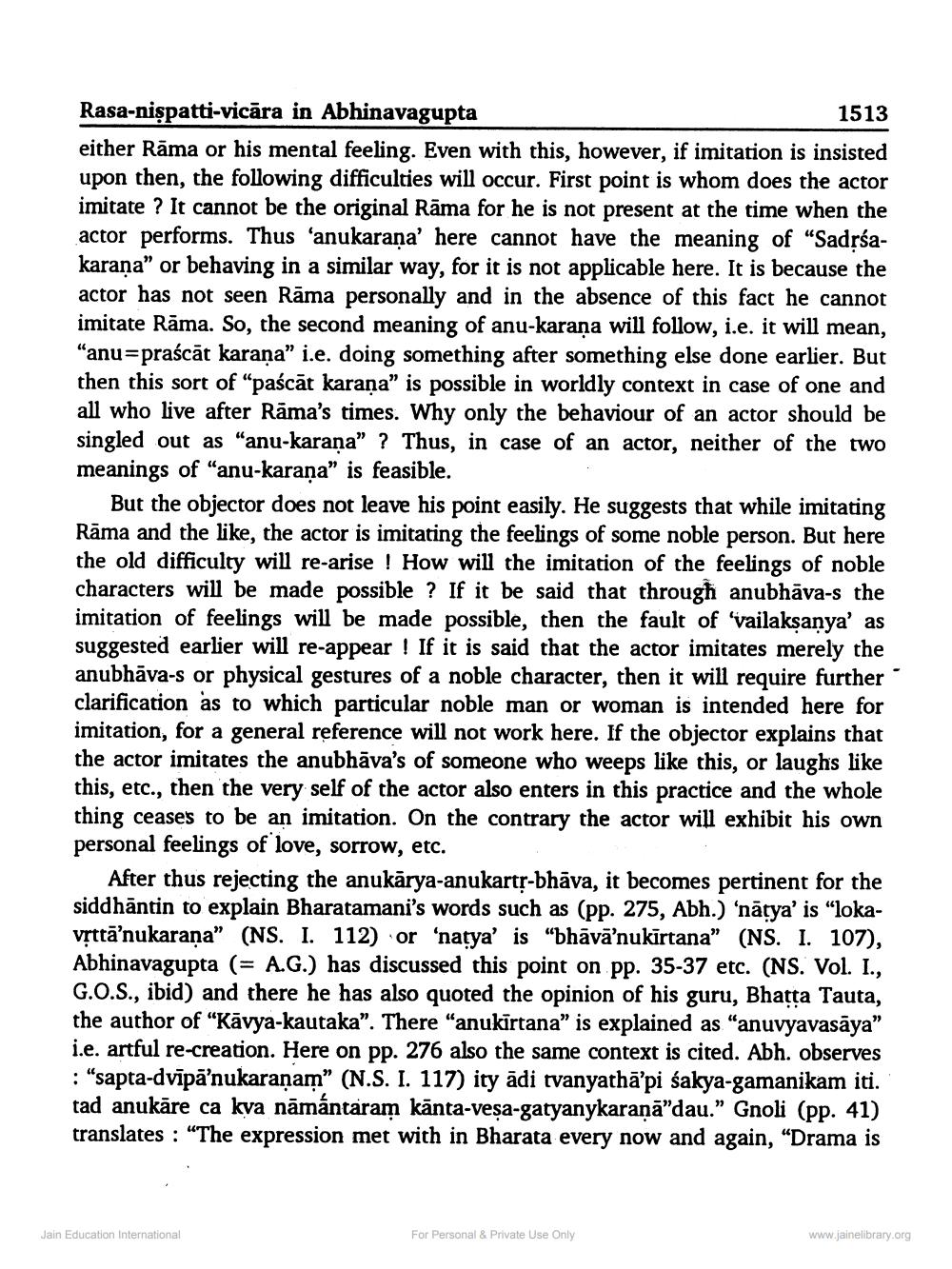________________
Rasa-nispatti-vicāra in Abhinavagupta
1513
either Rāma or his mental feeling. Even with this, however, if imitation is insisted upon then, the following difficulties will occur. First point is whom does the actor imitate ? It cannot be the original Rāma for he is not present at the time when the actor performs. Thus 'anukarana' here cannot have the meaning of “Sadrśakarana” or behaving in a similar way, for it is not applicable here. It is because the actor has not seen Rāma personally and in the absence of this fact he cannot imitate Rāma. So, the second meaning of anu-karana will follow, i.e. it will mean, "anu=praścāt karana” i.e. doing something after something else done earlier. But then this sort of "paścāt karana" is possible in worldly context in case of one and all who live after Rāma's times. Why only the behaviour of an actor should be singled out as "anu-karana” ? Thus, in case of an actor, neither of the two meanings of "anu-karaņa" is feasible.
But the objector does not leave his point easily. He suggests that while imitating Rāma and the like, the actor is imitating the feelings of some noble person. But here the old difficulty will re-arise ! How will the imitation of the feelings of noble characters will be made possible ? If it be said that through anubhāva-s the imitation of feelings will be made possible, then the fault of 'vailaksanya' as suggested earlier will re-appear ! If it is said that the actor imitates merely the anubhāva-s or physical gestures of a noble character, then it will require further clarification as to which particular noble man or woman is intended here for imitation, for a general reference will not work here. If the objector explains that the actor imitates the anubhāva's of someone who weeps like this, or laughs like this, etc., then the very self of the actor also enters in this practice and the whole thing ceases to be an imitation. On the contrary the actor will exhibit his own personal feelings of love, sorrow, etc.
After thus rejecting the anukārya-anukartr-bhāva, it becomes pertinent for the siddhāntin to explain Bharatamani's words such as (pp. 275, Abh.) 'nārya' is “lokavịttā’nukarana” (NS. I. 112) or 'natya' is “bhāvā’nukirtana” (NS. I. 107), Abhinavagupta (= A.G.) has discussed this point on pp. 35-37 etc. (NS. Vol. I., G.O.S., ibid) and there he has also quoted the opinion of his guru, Bhatta Tauta, the author of "Kāvya-kautaka”. There “anukīrtana” is explained as “anuvyavasāya" i.e. artful re-creation. Here on pp. 276 also the same context is cited. Abh. observes : “sapta-dvīpā’nukaranam" (N.S. I. 117) ity adi tvanyathā’pi śakya-gamanikam iti. tad anukāre ca kva nāmántaram kānta-veșa-gatyanykaraņā”dau.” Gnoli (pp. 41) translates : “The expression met with in Bharata every now and again, “Drama is
Jain Education International
For Personal & Private Use Only
www.jainelibrary.org




